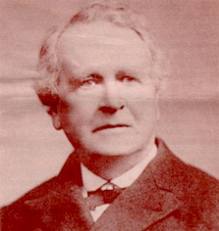
Organon Of Medicine (5Th & 6Th Edition) With Word Index
( You Save 25% )

Dudgeon was born on March 17, 1820, and died Sept. 8, 1904 (also listed as September 9th). He resided at 53 Montague Square, London W1. He qualified as LRCS Edinburgh in 1839, MD Edinburgh in 1841, and became Fellow of the British Homeopathic Society, and consultant surgeon (mainly ophthalmic) to the London Homeopathic Hospital. He also invented an early form of Sphygmograph (see Concise Dictionary of National Biography, Oxford; and in Infopedia 95 CD Rom). He was the first editor of BJH from 1845-1884. Accordingly, he became a homoeopath c1843 under the influence of a semester spent in the Medical School in Vienna and then under Dr John Drysdale in Liverpool. He set up practice in London in 1845. Drysdale and Dr John Rutherford Russell were fellow students of Dudgeon in Vienna (Dict Nat Biog, p531). The three also edited the BJH from 1846-84 after which it ceased. "In 1850 he helped to found the Hahnemann Hospital and the The London School of Homoeopathy in Bloomsbury Square, with which was connected the Hahnemann Medical Society" (ibid).He became Secretary of the BHS in 1848 & President in 1878 and 1890. He was a low-potency prescriber like Hughes, with whom he was always associated. Like Hughes, he was opposed to the higher potencies 'on principle', which at that time was practically everything above 6x, and to the indiscriminate use of nosodes and unproven remedies. He sought justification for these views from Hahnemann, who never promoted the use of high potencies, even though he made use of them occasionally. Dudgeon died before any of the information about Hahnemann's later work was published in 1922. Yet Dudgeon, as a translator of German works, must have been aware of Hahnemann's use of liquid doses, centesimals, and LM’s and serial dilution in water, techniques which were all brought in with the 5th Edition of the Organon in the 1830. Perhaps Dudgeon conveniently chose to ignore these developments as a 'temporary deviational experiment' on Hahnemann's part. We simply do not know what Dudgeon made of that. But as an ardent '3xer' he would never have used such techniques and would certainly have regarded them with a derisive scepticism.

( You Save 25% )